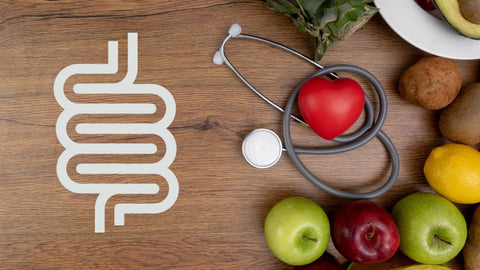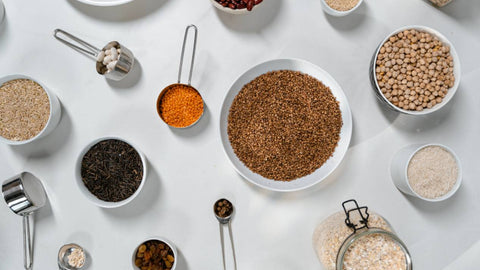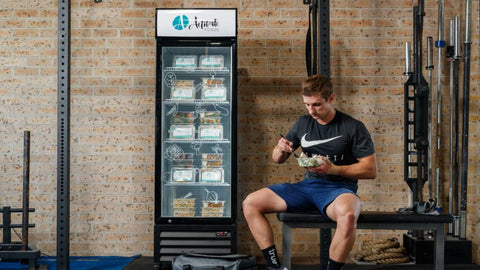Gut health is such a hot topic, and rightly so with more and more research showing us just how important our gut is when it comes to our overall health. However, ,ost of what people believe about gut health is incorrect. In this month’s blog our resident dietitian Nicole from Eatsense dietitians debunks some of the most common misconceptions around nutrition and our gut health.
- Cutting out food groups is key to good gut health: Exclusion diets such as dairy-free, gluten-free and keto diets have gained a lot of popularity over the past few years. However, these diets are more often than not unsuitable and unnecessary for most people. This is unless you have a diagnosed medical condition such as lactose intolerance or Coeliac disease. One of the key things for achieving optimal gut health is having a DIVERSE diet which in turn increases the diversity of microbes living in your gut which is a good thing. Cutting out any food group unnecessarily can negatively impact your gut microbes and decrease gut microbe diversity as well as lead to increased anxiety and nutrient deficiencies
- Apple cider vinegar (ACV) reduces inflammation in the gut and aids digestion: Little research has been done on the anti-inflammatory properties of ACV on the gut. Of the studies conducted, NONE have been able to prove that ACV is effective against gut inflammation. If you have too much stomach acid, vinegar can exacerbate that and make symptoms such as reflux worse. ACV which contains the ‘mother’ may contain small amounts of bacteria however it does not contain probiotics AND it isn’t clear whether this has any impact on our gut health. Although apples contain prebiotic fibre most of this is removed in the process of making ACV.
- If you have IBS, you have to be on a lifelong low FODMAP diet: A low FODMAP may help people who have been diagnosed by a medical professional as having IBS. However, it is not a lifelong diet and is only designed to be followed for a period of 3-6 weeks under the care of a specialised dietitian. It also isn’t a cure for all those people with IBS. Roughly 75% of people with IBS report an improvement in their symptoms on a low FODMAP diet, 25% don’t.
- You need to go on a cleanse to reset your gut: “Detox” or “cleanse” diet programs and products are popular in magazines, stores and on national TV. Most detox programs involve restrictive diets, fasts, juices and expensive supplements that claim that the body needs help detoxifying itself of its burden of toxins. But your body is well equipped to detoxify on its own with the help of the lungs, kidneys, colon, lymphatic system, and liver.There is a lack of scientific evidence to support the effectiveness of detox procedures and the idea that people can release toxins stored in organs and fatty tissues by changing their diet.
- Expensive supplements can compensate for a lousy diet: Supplements for gut health, such as fiber, prebiotics and probiotics are not superior to whole foods. The key to good gut health is:
- Getting atleast 30g of fibre per day
- Aiming for 30 different plant foods per week, think fruit, vegetables, legumes, wholegrains, nuts, seeds, herbs, spices and wholegrains
- Limiting processed meats, alcohol and ultra processed foods
There's no health benefit in taking an expensive probiotic supplement just because. Probiotics are recommended in a few scenarios and need to be taken in a specific dose and strain for a particular amount of time. Including fermented foods on top of a diverse plant-based diet such as yoghurt, kefir and kimchi can also provide an additional health benefit.
If you need help with improving your gut health, consider a consultation with an Accreditted Practicing Dietitian such as the team at Eatsense.
Eatsense: Erina | West Gosford | Kariong | Wyong | Umina | Saratoga | Telehealth
https://eatsense.com.au/


